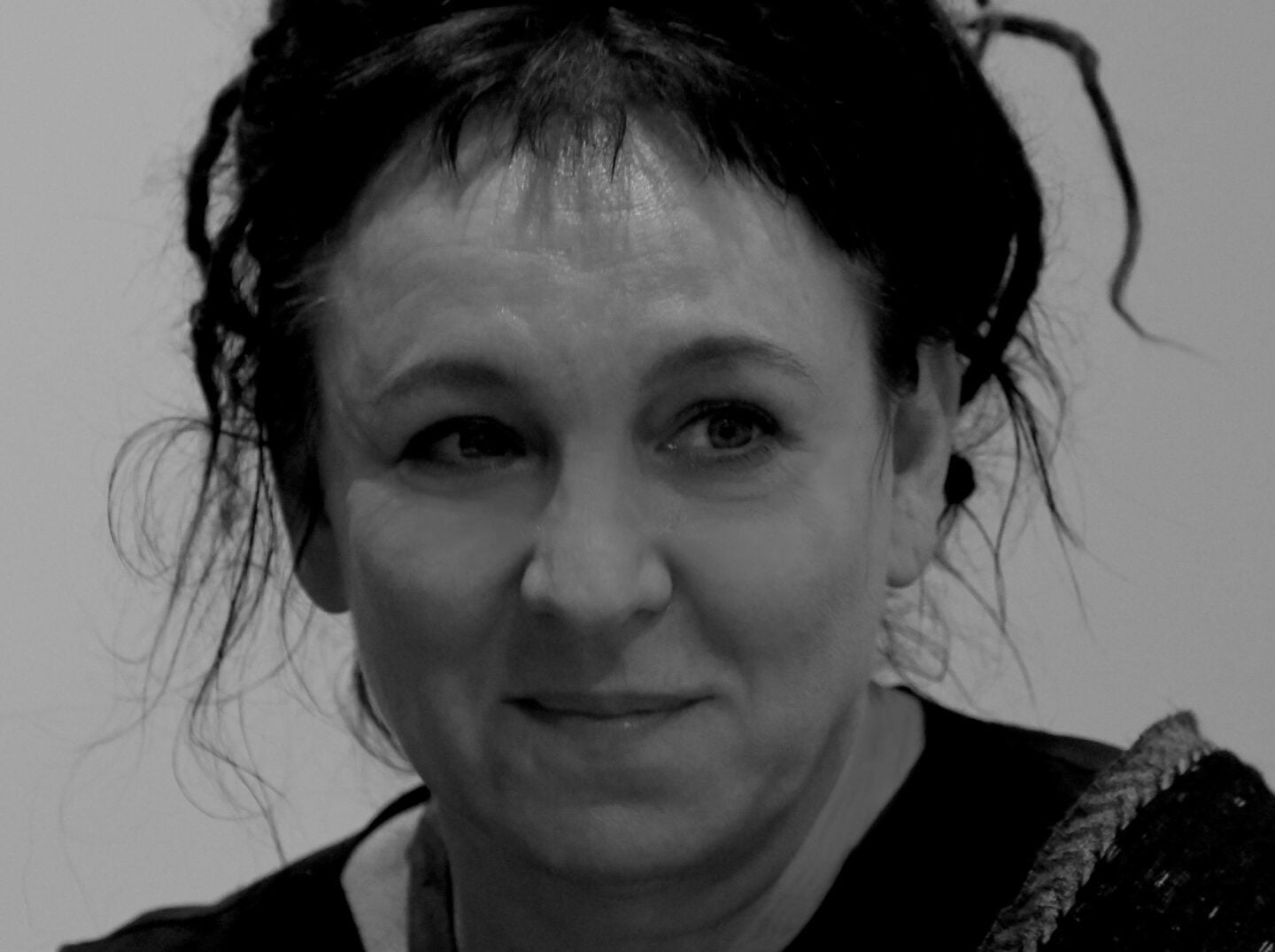
Olga Tokarczuk
Olga Tokarczuk was born in 1962 in Sulechów near Zielona Góra in Poland. She studied clinical psychology at University of Warsaw. After graduating she initially worked as a therapist.
Her first novel »Podróż ludzi Księgi« (tr: The Journey of the Book-People) was published in 1993, and was hailed by the Society of Polish Publishers as the best prose debut for 1992 and 1993. The novel, »Prawiek i inne czasy« (1996, Eng. »Primeval and Other Times«, 2009), tells the story of a small, fictional town in Eastern Poland over a period of eight decades. People’s lives are determined by the historical events of the 20th century, but despite being tied to historical events, there is a sense of timelessness in the poetic space Tokarczuk conjures up. Tokarczuk’s novel draws from classical as well as biblical mythology to deal with the eternal themes of love and hate, birth and death, spirituality and materialism. Mythology is also the focus of her novel »Anna In w grobowcach świata« (2006, tr: Anna In in the Tombs of the World), which touches on the saga of the Sumerian Moon Goddess Inanna. The novel »Dom dzienny, dom nocny« (1999, Eng. »House of Day, House of Night«, 2003) is set in a village in Lower Silesia and reads as a text made up of fragments: a combination of essay-like observations of the past and present, the legends, and the lives of the locals from Tokarczuk’s adopted home. The novel »Bieguni« (2008, tr: Runners) concentrates on the nomadic lifestyles of modern people and it varies in form between travel stories, mythological tales, and philosophical observations. Her animal welfare novel »Prowadź swój pług przez kości umarłych« (2009; Eng. »Drive Your Plow Over the Bones of the Dead«, 2018), filmed by Agnieszka Holland, tells the story of an aging mining engineer who indulges her love for animals, astrology, and William Blake in the seclusion of the Polish mountains. Tokarczuk’s historical novel »Księgi Jakubowe« (2014; tr: The Books of Jacob), which sparked controversy in her home region, chronicles the fate of the Polish-Lithuanian Commonwealth before its division between Russia, Austria, and Prussia. The book also follows the life of Jakob Joseph Frank, who, as one of the most influential figures in Jewish life in the 18th century, wanted his people in Eastern Europe to embrace modernity.
Olga Tokarczuk has lived in the village of Krajanów, near Nowa Ruda, and in Wroclaw since 1998. It was here where she also ran her publishing house Ruta for several years before deciding to write full-time. In addition to many other honors, she was awarded the Brücke Berlin Literatur- und Übersetzerpreis, the Man Booker International Prize, and the Noble Prize for Literature in 2019 (retroactively for the year 2018). The committee awarded Tokarczuk the prize »for a narrative imagination that with encyclopedic passion represents the crossing of boundaries as a form of life«.
Ur und andere Zeiten
Berlin Verlag
Berlin, 2000
[Ü: Esther Kinsky]
Taghaus, Nachthaus
Deutsche Verlags-Anstalt
Stuttgart/München, 2001
[Ü: Esther Kinsky]
Letzte Geschichten
Deutsche Verlags-Anstalt
München, 2006
[Ü: Esther Kinsky]
AnnaIn in den Katakomben
Der Mythos der Mondgöttin Inanna
Berlin Verlag
Berlin, 2007
[Ü: Esther Kinsky]
Unrast
Schöffling
Frankfurt a. M., 2009
[Ü: Esther Kinsky]
Der Gesang der Fledermäuse
Schöffling
Frankfurt a. M., 2011
[Ü: Doreen Daume]
Die Jakobsbücher
Kampa
Zürich, 2019
[Ü: Lisa Palmes u. Lothar Quinkenstein]
